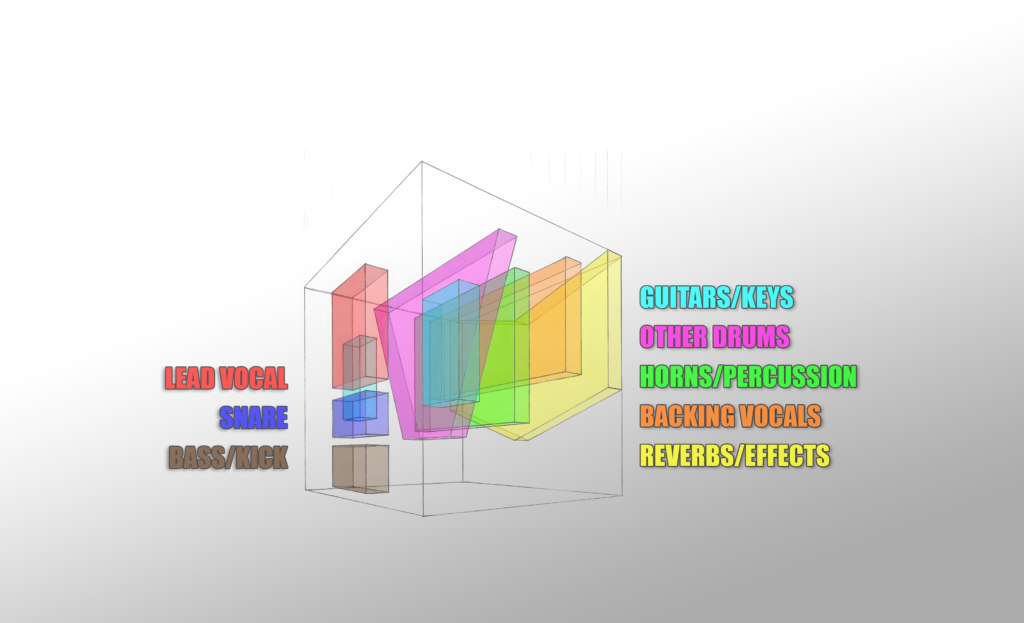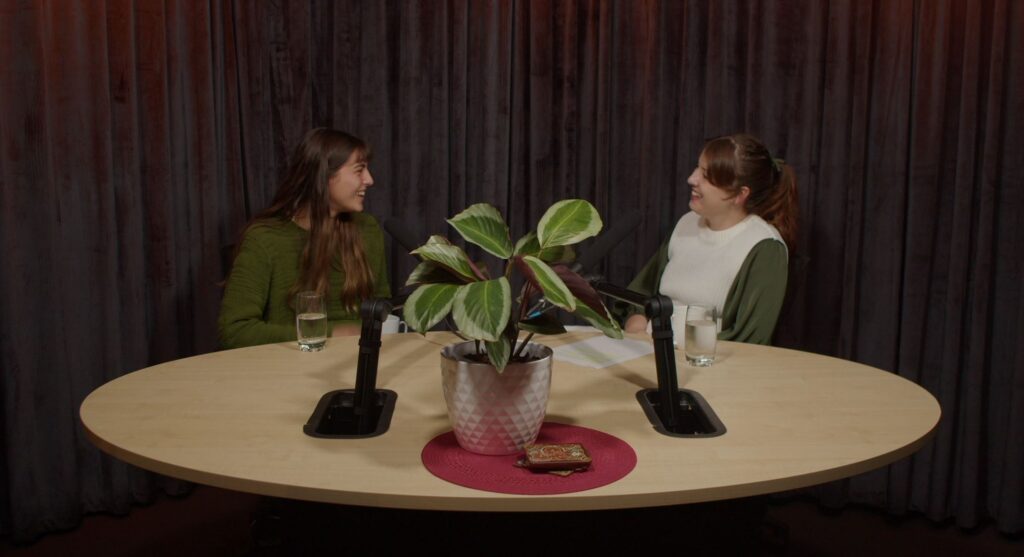Rosa: Hello, and welcome to the Matrix Digital client interview series. Today we’re here with Isobelle Walker, our friend and founder of Orchid Inc Media and Awkward Talks. How’s it going today?
Issy: Good, I’m so glad to be here. Thanks for having me.
Rosa: Oh, we’re so glad to have you in.
Issy: Strange to be in the guest seat, as opposed to the interviewer seat.
Rosa: Yes, when I contacted Issy, she was like, “I feel like you’re uno reversing me. What is this?” So I’m gonna try my best… So. Awkward Talks.
Issy: Yes.
Rosa: You’ve released 18 episodes now?
Issy: Yes!!
Rosa: Eighteen episodes. That’s awesome. You’ve created such a beautiful platform for people to connect and have such important kōrero. Talk to me about it. What do you feel has been the most valuable part of the process for you?
Issy: The conversations and the perspectives, I think, have been the biggest thing for me. I am naturally quite an introverted person, which people may not guess.
Rosa: You wouldn’t pick it.
Issy: Yeah, people may not guess because I host a podcast, but I am. So I always find myself in social situations, gravitating towards the corner of the room and having intense DMCs [Deep & Meaningful Conversations] and wanting to get to the nitty gritty of what’s happening in someone’s life or career, especially when it came to the music scene.
Rosa: Yeah. I feel that.
Issy: Coming into the industry more in Wellington, where there’s a large number of people and gigs, it’s harder to have those conversations. So I created Awkward Talks to emulate that space where you can just have really authentic conversations with other creative people. The biggest thing that I took out of the whole first season was just that everyone is experiencing the same things, but with a different perspective and with a different… ‘flavour,’ if you will, and that’s super validating. It was for me, throughout the whole process, really validating to hear everyone’s journey was different but also had those similar underlying themes.
Rosa: 100%. I think that is what’s at the core of it. Obviously, that was your ‘why’ for creating everything. There’s such a need for it and it’s so awesome. So, you’re into your second season now. You recorded your first season here at Matrix Digital and now you’re doing your second season at home?
Issy: Yeah, kind of. We found that with things kind of changing on my end – with my incredible co-host for season one Kei moving on to focusing on their projects with Tahini Bikini and Sig Wilder and Friends. I just felt this call to make things really dynamic, and go and meet people where they were and in their spaces, and make it even more of an intimate conversation. So we have started just going to people’s houses – like Shaan – in the first episode of the season, we went to his place, which was super cool. Then the episode we did with Riiki was just in our little apartment. Doing things at Matrix Digital for the first season was so smooth and so seamless. But yeah, we’re just trying different things, moving around. We’ll be back here soon, probably.
Rosa: Well, we’d love to have you back. And with podcasting, what would your recommendation be for somebody who’s trying to get into that in a creative way? How do you set up for that in your mind? How do you come up with so many questions? Do you always script or do you have ideas flowing with you? Is it a bit on the fly?
Issy: It is, I will over prepare and then go completely off script, and this is not how I started. I started out scripting. In our first season we scripted and it’s harder when you’ve got two hosts because you need to literally be on the same page.
Now though, I’m realizing that actually being a good podcaster and a good interviewer is not about asking good questions, it’s about listening and responding to what that person is giving to you. So now I kind of have an idea of the conversation I want to have with someone before I even invite them on the podcast. I’ll prepare and do lots of research about them and make notes of different conversation points. But then in the interview, I just like focusing on being really present with what they’re saying because you don’t want to miss something if they bring it up. And this is 100% a mistake that I’ve made before, someone has brought up something really interesting or really important to their story. And because I didn’t have that skill or I didn’t have that perspective, I’ve just gone, “Okay, cool, moving on to the next question.” which doesn’t make for a great listener experience because as a listener, you’re going, “Oh my gosh.” But they just said this, we want to hear what they’re talking about.
Rosa: Yes, true. That is very valuable advice. Thank you. Your endeavors in the creative realm are not limited to just Awkward Talks, you are also a musician and have founded Orchid Inc. Can you give me a bit more of an idea about what Orchid Inc is about?
Issy: Orchid Inc Media, I started because I found that I’m someone that really enjoys social media, or enjoys the positive sides of social media, and can see how it really impacts people’s lives in a positive way, and connects people in a really positive way. I found that a lot of artists felt a lot of resistance to social media because it feels like an added thing on their plate to do. When you are an independent artist, in whatever capacity, you’re wearing so many different hats already and then if you put social media on top of that, which to some people – or actually to a lot of artists – it feels like a different/another performance. Especially in those situations where you are having to advocate for yourself.
Rosa: Yeah absolutely.
Issy: I officially launched Orchid Inc Media as a media or content creation & production agency. It’s slowly growing, slowly getting the word out there. It’s still a relatively new concept, I would say in New Zealand to be really prioritizing your social media.
Rosa: It’s so important though. I mean, if you’re thinking about the way that a lot of things are progressing, it’s about virality. So I have had a bit of a stalk of your services, can you talk about the packages you offer a little bit?
Issy: Yeah, sure. So the packages that I offer, part of them is content creation specifically for events and for gigs, where in that package, I offer doing a 24 hour turnaround. So that the very next day after your gig, after your performance, you have a piece of short form content from the point of view of the audience, of the end user, that highlights the evening. And it’s a way of saying, thank you for coming, for showing what a really great time it was. So if people missed out on coming, they’ll be like, “Dang, I need to be there next time.” And it’s such a great opportunity to capture you doing what you do best. When you think about it, the reason why content can feel so difficult for artists is because when they’re creating, when they’re doing the thing that should be the content, they’re doing the thing. They don’t have a fifth arm where they can take a video of themselves performing at a gig or like writing or doing band practice or at a recording studio, right? So it feels extra because then you have to come away from that and go, “Dang, now I have to recreate situations and make extra content.” Whereas if you just had that third person there to take the content at the gig, put a little bit of effort into maybe doing some pre-gig content and post-gig content, then you can essentially get a post a day, a month’s worth of content from just one show.
Rosa: Yeah, that’s awesome.
Issy: Yeah, so that’s kind of the idea behind it is like, let me capture the moment that you’re in so that you can just stay in that moment.
Rosa: Perfect. What a mission statement. Thank you so much for the advice. Thank you for speaking on your ventures. Thank you for coming back in. We’ve missed having you.



